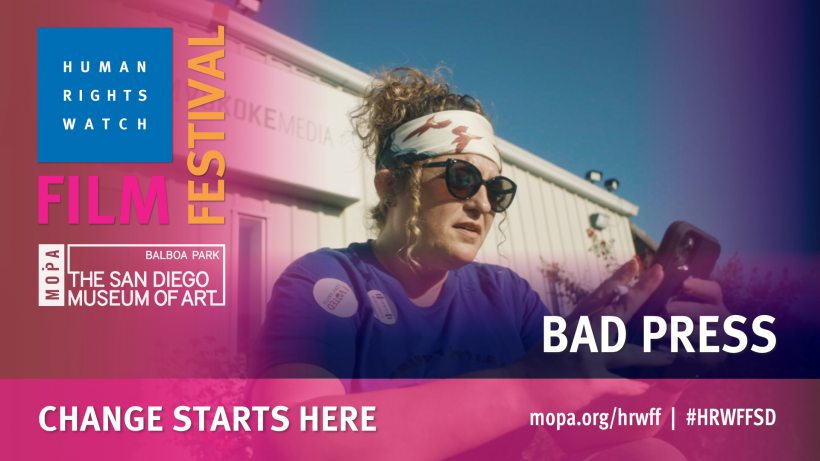The Dart Center & Human Rights Watch Film Festival Present: "Bad Press"
United States

The Dart Center is a proud presenting partner of Bad Press, a film that follows one Indigenous news outlet's fight to survive, part of the Human Rights Watch Film Festival.
About the film: When the elected leaders of the Muscogee Nation, the fourth largest Native American tribe, suddenly curb press freedom and give officials authority to edit all news stories before they reach the public, a rogue reporter fights to expose her government’s corruption in a historic battle that will have ramifications for all of Indian Country.
The film will be streaming across the US from February 4-10 on the Human Rights Watch Film Festival streaming platform.
Digital Tickets:
- Individual film digital tickets: $6 Members/ $9 public
- Digital-only festival pass: $20 members/ $35 public. Provides access to 5 films online, including 2 films not available in person.
_____________________________________________________________________________________________________________________________
For more than 40 years, Human Rights Watch has defended people at risk of abuse by investigating abuses scrupulously, exposing the facts widely, and relentlessly pressing those in power for change that respects rights. Our researchers examine situations in more than 100 countries around the world functioning as investigators, journalists, and advocates.
Recently marking our 30th Anniversary and currently screening films in over 15 cities around the world, the Human Rights Watch Film Festival (HRWFF) bears witness to human rights violations in direct storytelling and exposé form, and creates a forum for courageous individuals on both sides of the lens to empower audiences with the knowledge that personal commitment can make a difference. In 30 years we have showcased over 720 films at our global festivals.
HRWFF makes effort to celebrate diversity of content and perspective in the films we select and post-screening conversations we host. From filmmakers to film participants to panelists, we strive to prioritize space for identities, viewpoints, forms of expertise and experiences either silenced or marginalized in the film industry, news and media. Discussions following the screenings with filmmakers, film participants, human rights activists & journalists take place after every screening to provide our audience with the opportunity to dig deeper into the issues they have just seen on screen.